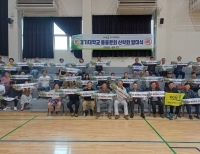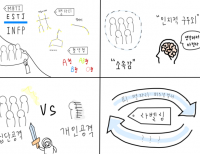Currently, the won-dollar exchange rate is approaching 1,400 won, reaching the highest level in 13 years and 6 months. This is close to the won-dollar exchange rate of 1,422 won in March 2009, right after the financial crisis. With the expectation of further rate hikes at the Fed's monetary policy meeting, many experts believe that further increases in the exchange rate are on the horizon. An increase in the exchange rate means that the won has weakened against the dollar. So why has the dollar abnormally risen in value?
ᅠ
The cause of the current abnormal economic situation is an attempt to curb inflation. Inflation in the United States has been caused by a number of complex reasons, among which the most significant are COVID-19 and the Russian-Ukrainian war. The policy of quantitative easing, where subsidies were paid to revive the economy that was stagnant due to COVID-19, increased the flow of money, leading to inflation and a decrease in the value of money. In addition, the Russian-Ukrainian war has also fueled inflation as prices for food and raw materials have risen. As the pressure on inflation intensified, the Fed implemented a "Great Step" and tightened monetary policy to shrink the economy. Raising the interest rate reduces the money supply in the market, thereby curbing inflation. The US dollar has considerable credit as a keyᅠcurrency, and rising US interest rates make the dollar more attractive, increasing demand and increasing its value. In order to prevent the outflow of money into the US, the interest rate of the won also rises, and the strength of the dollar due to the continuous increase in the interest rate leads to an increase in the exchange rate.
ᅠ
The impact of rising interest rates and exchange rates on the economy is diverse. Rising interest rates make companies hesitant to invest. In addition to the contraction of corporate investment, the expectations of shareholders about the tightening of the economy due to an increase in interest rates and a decline in corporate sales reduce the value of stocks. The cooling of the current real estate market is also a result of high interest rates. Rising interest rates increase the burden on real estate loans, which reduces demand for real estate, which in turn reduces real estate prices. Exchange rates also affect trade. When the exchange rate rises, the value of the won decreases, increasing the attractiveness of domestic products. However, not only the won, but also the yuan, the yen, and the euro are all depreciating, which does not significantly affect Korea's exports, but does harm imports.
Economic fluctuations occur continuously. Both economic booms and recessions are natural phenomena that flow and repeat, and there have always been winners and losers in the economy. However, rapid economic fluctuations such as the present one can come as a great burden to everyone. There is also a concern that economic instability will cause people's expectations to lower and worsen the situation. Now is a time when economic stability is more necessary than ever to prevent further chaos.
78th Cub Reporter · JOUNG DONG JUN · beancurd123@kyonggi.ac.kr
 Freedom Given to Youth: An Opportunity for Choice or a Burden of Constraint?
“Are we truly free today?” Classical literature is far more than time-honored stories. It offers profound insights into human nature and society that transcend time, remaining a valuable resource for examining the challenges our world faces today. This article will draw on George Orwell’s 1984 and Charles Dickens’ Oliver Twist to explore the contemporary issues of youth housing and the emergence of a surveillance society ...
Freedom Given to Youth: An Opportunity for Choice or a Burden of Constraint?
“Are we truly free today?” Classical literature is far more than time-honored stories. It offers profound insights into human nature and society that transcend time, remaining a valuable resource for examining the challenges our world faces today. This article will draw on George Orwell’s 1984 and Charles Dickens’ Oliver Twist to explore the contemporary issues of youth housing and the emergence of a surveillance society ...

 [단신] 산악회, 본교 동문의 버팀목이 될 수 있도록
[단신] 산악회, 본교 동문의 버팀목이 될 수 있도록
 [사회메인] 노인 인구 1,000만 시대, 준비 없는 사회가 불안해
[사회메인] 노인 인구 1,000만 시대, 준비 없는 사회가 불안해
 [네컷만화] 라벨링 문화
[네컷만화] 라벨링 문화
 [진리터] 결국 우리 모두 돌아볼 것이니
[진리터] 결국 우리 모두 돌아볼 것이니

 목록
목록










